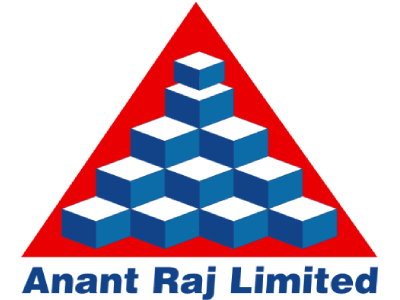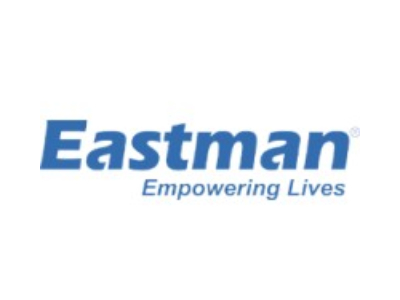Factory License
A factory license, also known as a factory registration or factory permit, is a legal requirement for establishing and operating a factory or manufacturing unit in many jurisdictions. It is a regulatory mechanism implemented by government authorities to ensure that factories comply with safety, health, and environmental regulations while conducting their operations.
To obtain a factory license, the factory owner or management typically needs to submit an application to the designated government authority responsible for factory regulation. The application process may involve providing information about the factory, such as its location, size, nature of operations, machinery and equipment used, details of safety measures, and other relevant information. It may also require submitting necessary documents, such as building plans, fire safety certificates, environmental impact assessments (if applicable), and payment of the prescribed fees.
Free Call Back by our Expert
Here are some key characteristics of Factory License
- Legal Requirement
- Safety and Health Regulations
- Environmental Compliance
- Application Process
- Inspections and Audits
A factory license is typically mandatory for factories engaged in manufacturing, processing, or production activities. The specific requirements and thresholds for obtaining a factory license can vary depending on the country, state, or local jurisdiction. Failure to obtain the required license can result in penalties, fines, or legal consequences.
Factory licenses are typically issued for a specific period, often ranging from one to five years, depending on the jurisdiction. Factories are usually required to renew their licenses before they expire. The renewal process may involve re-assessing compliance with regulations, updating information, and payment of renewal fees. Regular inspections or audits may be conducted during the license period to ensure ongoing compliance.
Employment Contracts: Labour laws typically address the formation, terms, and conditions of employment contracts. These contracts outline the rights and obligations of both the employer and the employee, including provisions on working hours, remuneration, leave entitlements, and termination procedures.
Minimum Wage and Working Hours: Labour laws often establish minimum wage levels to ensure that workers receive fair compensation for their work. Similarly, they regulate maximum working hours, rest periods, and overtime provisions to safeguard employees’ health, safety, and work-life balance.
Health and Safety: Occupational health and safety regulations aim to provide a safe and healthy work environment for employees. Labour laws set standards for workplace safety, including measures for accident prevention, occupational health assessments, and the provision of personal protective equipment.
In addition to safety and health regulations, factory licenses often encompass environmental compliance as well. Factories may be required to comply with regulations related to air pollution control, water pollution control, hazardous waste management, noise pollution, and other environmental concerns. Authorities may conduct inspections and impose measures to ensure compliance with these regulations.
To obtain a factory license, the factory owner or management typically needs to submit an application to the designated government authority responsible for factory regulation. The application process may involve providing information about the factory, such as its location, size, nature of operations, machinery and equipment used, details of safety measures, and other relevant information. It may also require submitting necessary documents, such as building plans, fire safety certificates, environmental impact assessments (if applicable), and payment of the prescribed fees.
Before granting a factory license, authorities may conduct inspections and audits to assess the compliance of the factory with safety, health, and environmental regulations. Inspections may include examining the premises, machinery, equipment, safety protocols, and emergency preparedness. If any deficiencies are identified, the factory may be required to rectify them before obtaining the license.
Company Registration in India
To register a company in India, you need to follow the guidelines and procedures set by the Ministry of Corporate Affairs (MCA). The registration process typically involves several steps, which I’ll outline below:
Obtain Digital Signature Certificate (DSC): The first step is to obtain a digital signature certificate for the proposed directors of the company. The DSC is required for online filing during the registration process.
Obtain Director Identification Number (DIN): Each director of the company must have a DIN. You can apply for DIN online through the MCA portal by submitting the necessary documents and fees.
Name Reservation: Once you have obtained the DSC and DIN, you need to choose a unique name for your company and submit it to the MCA for approval. You can do this through the RUN (Reserve Unique Name) service available on the MCA portal. The name should comply with the naming guidelines and should not be similar to any existing company or trademark.
Prepare Incorporation Documents: After the name is approved, you need to prepare the incorporation documents, including the Memorandum of Association (MoA) and Articles of Association (AoA). These documents define the company’s objectives, rules, and regulations.
Filing of Incorporation Documents: Once the incorporation documents are ready, you can file them online with the MCA. The documents include Form SPICe (Simplified Proforma for Incorporating Company Electronically) along with the required attachments.
PAN and TAN Application: Along with the incorporation documents, you need to apply for a Permanent Account Number (PAN) and Tax Deduction and Collection Account Number (TAN) from the Income Tax Department.
Certificate of Incorporation: After reviewing the documents, if everything is in order, the Registrar of Companies will issue a Certificate of Incorporation. This document signifies the formal registration of your company.
Apply for Goods and Services Tax (GST) Registration: Depending on the nature of your business, you may need to register for GST, which is a tax levied on the supply of goods and services. You can apply for GST registration online through the GST portal.
It’s important to note that the registration process and requirements may vary depending on the type of company you want to register (e.g., private limited, public limited, one person company, etc.) and the specific circumstances of your business. It’s advisable to consult with a professional, such as a company secretary or a chartered accountant, to ensure compliance with all legal requirements and to guide you through the registration process.
Customer Reviews
VITIKA MAKAJI
Trademark Objection
- Verified Customer
04 May 2023
Good follow up.
SWETHA D
DIN eKYC Filing
- Verified Customer
12 May 2023
Goood
HARIHARAVIJITHA M
Trademark Registration
- Verified Customer
04 May 2023
nice
VITIKA MAKAJI
Trademark Objection
- Verified Customer
04 May 2023
Good follow up.
Our Clients







